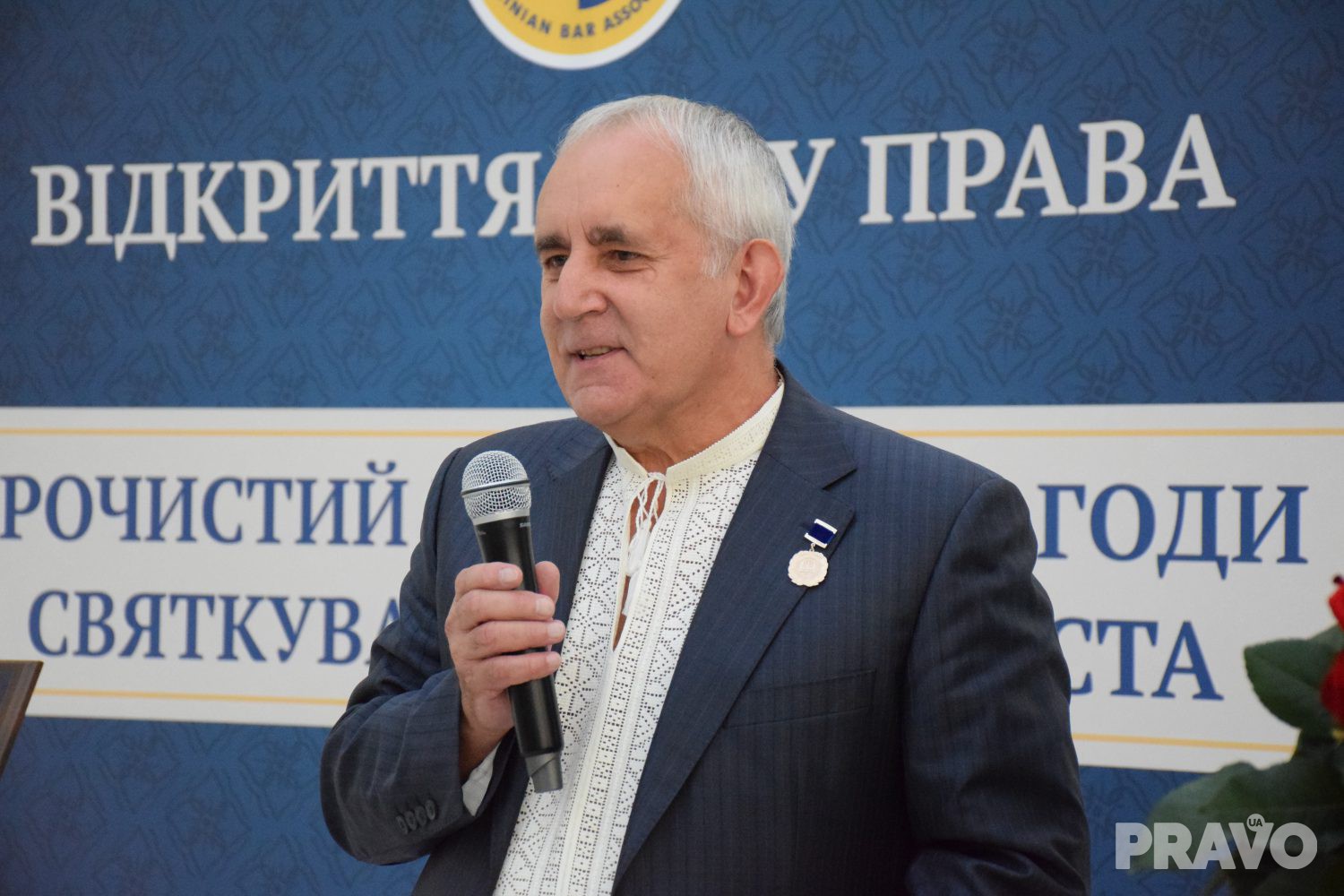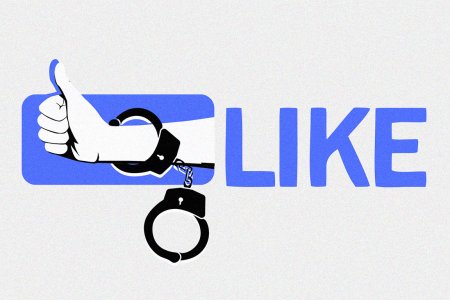![Ілюстрації: Марія Крикуненко/ХПГ [закон про медіа тб]](https://khpg.org/files/img/1608815998.jpg)
Ten years of fierce debate in Ukrainian society ended with the parliament's almost unanimous adoption of the Law on Media on December 13, 2022. A constitutional law scholar and Chairperson of the KHPG Board, Vsevolod Rechytskyi, believes the law is “harmful”, “naive”, and even violates the Ukrainian Constitution. Rechytskyi is one of the leading expert on freedom of expression in Ukraine.
In an interview with the Kharkiv Human Rights Protection Group, he shared his views on the new law, freedom of speech, and disinformation.
Why do we need a law on media? And do we need it at all?
It would be needed if it expanded intellectual freedom, freedom of speech, and thought. In my opinion, the new law narrows rather than expands freedom of speech, and therefore it is more harmful than beneficial to Ukrainian interests.
“The new law narrows rather than expands freedom of speech, and therefore it is more harmful than beneficial to Ukrainian interests”
Three hundred pages of a legal text is really a lot. Can you call this law complicated?
It is more or less understandable but very large: it includes a vast number of small provisions. To apply this law, you have to keep in mind countless provisions, and usually, only narrow professionals can do that.
And since this law is mainly restrictive, it actually requires people who will execute the functions of censors. Sure, this law recognizes the prohibition of censorship. Still, to make it workable and satisfy the interests it is intended to meet, it must create a whole union of censors. They may be called officially editors or members of the National Council on Television and Radio Broadcasting, but they will, in fact, be censors. However, censorship is prohibited by the Ukrainian Constitution.
I can say that this law is so burdensome and detailed that it will hardly work. It will be used as an instrument of punishment but will be applied purely selectively.

“To make this law workable, we need a whole union of censors”
What risks do you see for freedom of expression in adopting the Law on Media?
It contains an extensive list of grounds sufficient to restrict any freedom of speech. This list is several times wider than the list of grounds for limiting freedom of speech in the Constitution of Ukraine. Thus, I believe it violates the Constitution of Ukraine and narrows subjective rights, including the right to freedom of expression. This is unacceptable. No law in Ukraine should limit constitutional rights.
Should the state have any control over the media market at all? In what context?
I believe that there should be no bodies controlling open information space at all. It should be included in the wide market, and information should be supplied by everyone who wants it. There is no need for media registration at all. The only thing that is needed is licensing of radio frequencies because their number is limited. Some experts from the United States stated even in 1992 that Article 10 of the Ukrainian Constitution is oppressive (“tyrant’s dream”) and does not mean anything good for Ukraine.
“The state should not be the supervisor controlling the flow of information that comes to the people because the people stay above the state”
What do you think are the main drawbacks of the law?
There are a lot of shortcomings. According to the law, the National Council on Television and Radio Broadcasting is supposed to create a state strategy in the information space and a plan for its implementation. But the information space is so unpredictable that the National Council cannot predict what information Ukraine will face tomorrow. I can't imagine how you can implement a strategy for something you know nothing about and can't know.
Therefore, in fact, the National Council is a body that should filter information flows. But people's sovereignty is higher than the state's; thus, from the point of view of the people's interests, the people should be the primary recipient of information. The state should not be the supervisor controlling the flow of information that comes to the people because the people stay above the state. But according to this law, the state controls and filters information through the National Council, sets de facto and de jure filters on information flow, and determines what information to let on and what to hide or prohibit. In my opinion, this is the main drawback of this law.
The law also excessively strictly regulates the language of broadcasting. It introduces huge quotas for the Ukrainian language, which makes it the dominant language in TV and radio broadcasting. But these quotas are much higher than the actual share of Ukrainian-speaking people in Ukraine. In 2001 there were about 17 percent of ethnic Russians in Ukraine who used the Russian language [presumably, Vsevolod Rechytsky means not ethnicity but the language of communication; according to the latest KIIS poll, 90 percent of the Ukrainian population consider themselves ethnic Ukrainians, 15 percent of the population exclusively or mainly speak Russian, and another 25 percent use Russian along with Ukrainian]. But in reality, even broader segments of the population used Russian. It means that if the TV and radio broadcasting will use only the Ukrainian language or apply quotas, where 90 percent of the content must be in Ukrainian, this will not satisfy the interests of the Russian-speaking Ukrainian population. They, as a national minority, have the right to receive information and education in their language, and the Constitution recognizes this, in particular, in Articles 10 and 53.
There are also such strange concepts as “excessive focus on violence” in this law. It means nothing from the legal point of view. We don't know what is “sufficient focus on violence”. The word “excessive” presumes that we know what is normal, and this is impossible to define. I would say that a negative feature of this law is the legalization of concepts that are not subject to legalization.
There is also the concept of “indecent gestures” in this law. And here is the question again: what gestures are decent, and what are not? No dictionary defines what gestures are decent. It can be assumed that each person dealing with this law has to decide at their own risk what gestures are indecent. Thus, the law uses concepts that have no legal meaning.
Then, the law introduces too many grounds — a total of six — for refusing registration. This law generally pays too much attention to media registration procedures. I want to remind you that in Europe, as a rule, media are not registered. There is, of course, licensing of on-air broadcasting media outlets because the number of radio frequencies is limited; thus, licensing presumes the allocation of frequencies to use. But this law speaks not only of licensing but also of registration, which covers the entire information sphere. From the point of view of liberal democracy, Western standards of information, and intellectual freedom, any media registration is a restriction of freedom of speech and thought.
![[закон про медіа тб пропаганда орвел інформація преса]](https://khpg.org/files/img/1608816000.jpg)
The law allows the National Council to cancel the registration of online and print media after six significant violations. The significant violations include, in particular, refusal of inspection, dissemination of information that disparages the state language, coverage of the activities of Russian authorities without labeling them as an “aggressor state,” dissemination of hate speech, and denial of the criminal nature of communism.
Also, the law requires that information be presented objectively. The law's authors should have looked in the dictionary first and seen that the word “objective” means independent of the will and consciousness of a person. Everything a person does goes through the human head, which means it depends on the will and consciousness. Nobody can be objective in the information space. Indeed, at the household level, we can discuss the objectivity of information presentation. Still, at the legal level, “objectivity” loses its meaning because it is detached from the subject, the person. Information is meaningful only in a human environment. In the information space, everything is subjective, even when there is a war.
Another mistake of this law is to assume that information is predictable. That is, regulators can predict the effect of the dissemination of some information.
I would like to remind you that the U.S. Supreme Court recognizes only one reason to forbid broadcast information, and that is when false information is deliberately disseminated, and there is malice that must be proven. Our law says nothing about such malice. The dissemination of information can lead to different consequences. If the consequences are severe, people will be held liable under this law and fined or deprived of their license and registration. In my opinion, a journalist's primary duty is to provide up-to-date information. While the law has focused on ensuring the information is purely positive. I think we have lost our sense of proportion.
This law formally contains such positive things as the three-part test, the prohibition of censorship, and the prohibition of prior approving information messages. Still, it is imbued with the idea of censorship from start to finish. It is hidden under notions of “control” and "supervision,” which is actually censorship. If “supervision” is passive observation”, “control” is intervention, which involves imposing various sanctions.
“From the point of view of liberal democracy, Western standards of information, and intellectual freedom, any media registration is a restriction of freedom of speech and thought”
If to contrast: freedom of speech against protection from misinformation. Which is more important?
Simply put, misinformation is saying something that doesn't exist, telling a lie. But in the information space, the concept of truth is relative. The same information can be presented from different angles, which cannot be avoided because people's interests are opposite. Nothing good will come if we want people to speak from one position, one angle. Different journalists talk in different ways. Different witnesses talk about the same event in different ways. The famous movie Rashomon (1950), directed by Akira Kurosawa, is about a bandit attack. It shows several witnesses, and each honestly describes what he saw. As a result, essentially different truths emerge. This law assumes that there can be only one truth and that the war can be described only how the state approves. But people have the right to their own opinion.
“The law is imbued with the idea of censorship from start to finish, and we hide it under notions of “control” and “supervision””
![[закон про медіа тб пропаганда орвел інформація]](https://khpg.org/files/img/1608815999.jpg)
What would the US Supreme Court say about Russian propaganda?
The same thing as about any propaganda. Propaganda does not reckon with subjective reality but tries to change its perception in favor of the propagandist. A subject of propaganda can be anything: there is propaganda of capitalism, socialism, communism, or anything at all. I think the US Supreme Court would say that Russia is in a state of a cultural revolution like China was in the past. There, the intelligentsia was destroyed and persecuted. Then China started to teach tens of thousands of people in the United States and eventually realized that capitalism has prospects. I don't think they consider, as we do now, that Russia is hopeless, that it will disintegrate, that it is worthless. They probably think it has fallen into such an abyss of “obscurantism,” but this happens in different countries. Germany once fell into such an abyss, also Spain and Italy in the time of Mussolini.
Don't you think that in our time, restrictions on freedom of speech have crept up from where they were not expected? I mean “cancel culture”. Don't you think it's threatening when society itself seeks to restrict freedom of speech due to “wrong” views? Can anything be done about it (in particular, should the state do something)?
I think the state should sit back and not try to be an arbiter. The state should not pass laws that would restrict freedom of speech. On the contrary, the state should pass laws that expand freedom of speech and allow everyone to be themselves. I believe that people will never agree to unification. There will always be those who demand a reduction in freedom of speech and those who demand an expansion. There will also be those who will require feminitives and those who will be against them. And there is nothing to be done about it. But this is a culturally sensitive area of society. This is an expression by American professor David Easton. These areas do require no regulation but refusal from it. These areas should be protected from state regulation. The only thing the state can do is not to interfere.
It's different when you limit some physical actions of a person. Simply put, a person should have complete freedom of thought and speech. As long as it's only words, it's okay; that's how the human brain works because people are emotional beings. They are full of emotions. But when people move from words to deeds, the law should come into play and punish evil actions, but it should not punish words and thoughts. If you believe in a human being, then you believe in freedom; if you don't, you need supervised information filtration, censorship, etc.
Could this law worsen the quality of Ukrainian media content because they will need to spend more time making it “correct” for the regulator than interesting for users?
If implemented from end to end, the entire information policy will stop. Even today, people are complaining that Ukrainian news is entirely uninteresting, and they want to listen to news from other sources because everything is so smooth and positive here. If the law is implemented, Ukrainian media will be incredibly dull, and people will stop listening, watching, and reading it.
Also, this law can be called purely paternalistic: as if there is a “father of the nation" who supervises everyone, forbids saying “dirty” words, and demands positive behavior until it makes you sick to your stomach. I believe this testifies to the provincialism of Ukraine's political class. I think this is even a ridiculous law. It is so naive…
“If the law is implemented, Ukrainian media will be incredibly dull”
Sure. What, in your opinion, is the priority in revising the law?
I think this law should be postponed without further nonsense because we demonstrate that Ukraine is not yet mature enough for all this. Sure, we can take, for example, French law and copy it, but this is not an option. I believe that we should follow more American models than European ones. The best thing would be to repeal this law, freeze it, declare a moratorium, and wait until the war is over because regulating freedom of speech in a time of war will not lead to anything good.
In this way, we will create internal emigration, which already exists and becomes even greater after this law. That is, people will be silent, but they will still think their way. And as soon as they go to the polls, the results may be quite unexpected. If people get bored and sad by these laws, they will simply change the government. Efforts to pass this law aim to ensure control of future elections, but the effect may be paradoxically opposite. I would write all information-related laws to favor freedom, expanding the information space.
Will Ukraine ever be able to be as free in terms of freedom of expression as, for example, the United States?
I think so. Ukraine is very individualistic. Hetman Skoropadsky once said that Ukraine does not need socialization because it is naturally individualistic. Indeed, Ukraine has the best black soil in the world. Here, farming is something more than agro-production: it is a micro-society, a family. The well-known proverb “My hut is set apart, and I don't know anything” has much more meaning than it seems at first glance. If a person has income and land, they see the world in their own way.
We must bring the land to the market because it is our primary resource. And to do it in a real way, not how it is done in Article 13 of the Constitution when land is state-owned. Land should be private. Then, when Ukrainians become more prosperous, more selfish in a positive sense, and more individualistic, a sense of dignity will emerge that will push them to demand honest politics: a state where nobody dictates anything to them and tell them how to live because they know it themselves. In fact, why did Petliura and Vynnychenko lose? Because they believed in socialism and wanted to take away people's land, which meant taking away their dignity, turning them into biological beings.
We have, in essence, biologized the whole of Ukraine by turning it into a society of poor people. The face of Ukraine will change completely if we succeed in carrying out economic reforms and private property becomes powerful, and millions of people become potent owners. We must do this quickly because we do not have much historical time. The last 30 years, when we did not implement market reforms, have led to Ukraine being viewed as a no man's land. It is why the Russians thought: “Oh, come on, these Ukrainians can't manage themselves, and they own Crimea.”
Ukraine has to make reforms towards capitalism, towards the market, and become wealthy. Even before the war, Ukraine was considered the poorest country in Europe, though we are the richest regarding resources. Thus, we have prospects, but do we have the intelligence to make these transformations? I believe that everything should be done in parallel: fighting, implementing economic reforms, and changing the information system, i.e., expanding individualism and entrepreneurship so Ukrainians can enrich themselves.

